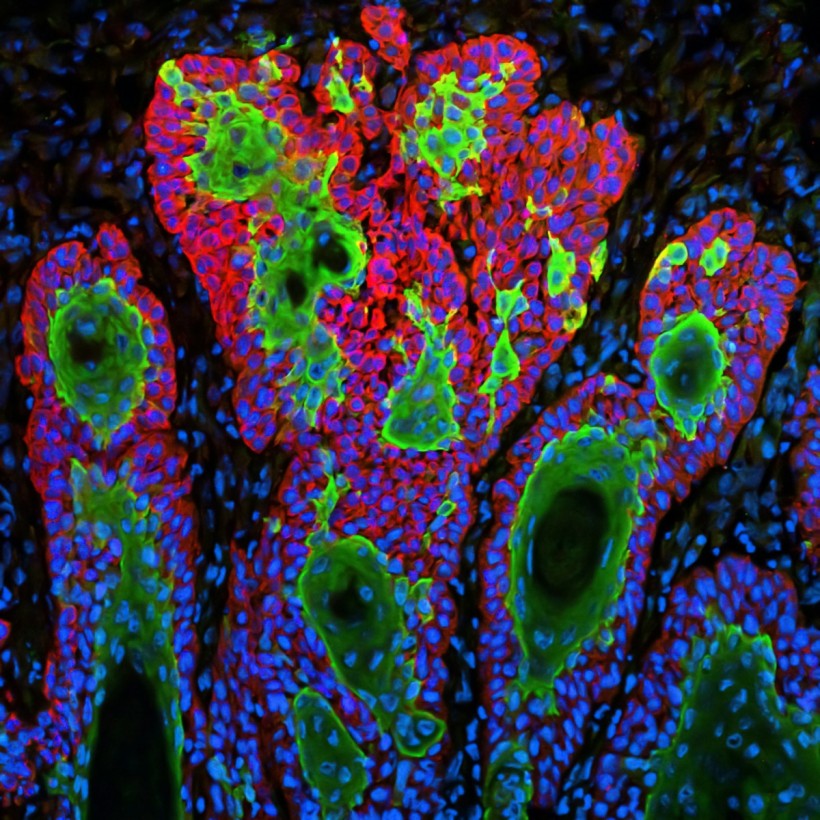Exploring outer space presents a potential solution to the intricate challenge of cancer. With 10 million lives claimed annually by this disease, despite significant scientific advancements, a cure remains elusive.
Researchers are investigating the effects of microgravity in low-Earth orbit, which unveil cellular behaviors typically obscured by gravitational forces. Insights gained from these experiments offer new perspectives on normal cellular functions and how they malfunction in cancer, providing hope for innovative cancer treatments.

(Photo : Unsplash/National Cancer Institute)
Cancer's Secrets in Microgravity
Scientists have been observing the effects of microgravity on cells for many years. Early experiments conducted aboard Skylab in the 1970s revealed that red blood cells undergo surface changes in space, which revert once astronauts return to Earth.
Microgravity occurs when objects orbit a planet while continuously falling towards it, creating a sensation of weightlessness for everything within the spacecraft.
This condition offers researchers a unique environment to study cellular behavior, influencing various aspects such as growth, gene activity, and response mechanisms.
Cancer cells, in particular, exhibit notable changes under microgravity, including accelerated growth, altered life cycle progression, and increased resistance to cell death. These findings provide valuable insights into the behavior of cancer cells, aiding in the development of more effective treatment strategies.
Microgravity's impact on cell behavior is attributed to the absence of gravitational force, allowing researchers to uncover phenomena that are not readily observable on Earth. Cellular responses to microgravity can unveil fundamental mechanisms underlying cancer development and progression.
By studying cell behavior in space, scientists aim to elucidate the complex dynamics of cancer cells and identify potential targets for therapeutic intervention.
Overall, microgravity research offers a promising avenue for advancing our understanding of cancer biology and improving treatment outcomes. By leveraging the unique conditions of space, scientists can gain novel insights into cellular behavior and develop innovative strategies to combat cancer more effectively.
NASA Research Unlocks Space Radiation Risks
Extended space missions subject astronauts to radiation equivalent to 1,000 chest X-rays, raising their cancer and health risks. NASA's research into radiation harm measurement led to the OncoMate MSI Dx Analysis System, aiding cancer treatment.
Biomarkers, biological molecules within the body indicative of normal or aberrant physiological processes, represent a promising avenue for tracking radiation-induced changes.
While post-mission DNA samples offer some insight, they remain insufficient. Wu underscores the urgency for early risk detection, citing cancer as a paradigmatic example where the identification of biomarkers heralds intervention opportunities before irreversible progression.
A 2002 study, sponsored by NASA's Office of Biological and Physical Research, investigated the potential of microsatellites within DNA to record radiation damage accurately. While some microsatellites mutate harmlessly, others are more susceptible to radiation damage, making them effective indicators of exposure levels.
The study's findings led to the development of the FDA-approved OncoMate test, which detects microsatellite instability (MSI) in cancer cells, aiding in Lynch syndrome screening and treatment decisions. Through collaborations and further research, the impact of NASA-funded studies like this extends beyond space exploration, facilitating advancements in medical diagnostics and cancer treatment.
RELATED ARTICLE: Medicine in Space: Can Low-Gravity Environment Speed Up Drug Development?
Check out more news and information on Cancer in Science Times.














